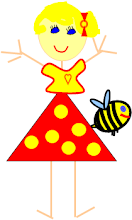Snack time is a terrific time to let children learn to do things all by themselves.
Have the children get into the practice of washing hands first and while they are washing hands, set out napkins and cups at one end of a table or on a low shelf. Have the children go and get their own napkin and cup then sit at the snack table.
These children have had lots of practice standing in line and waiting for their turn to pick up a cup and napkin all by themselves.
Once the children sit at the table, they open their napkin big and wide and set their cup on the table. In some classrooms, the children then wait for all of their friends to be seated. The teacher then uses the familiar finger play:
Open-Shut them
Open-Shut them
Open-Shut them and give a little clap!
Open-Shut them
Open-Shut them
Open-Shut them and lay them in your lap!
This gets all the children to quiet down and helps to start off snack at a moderately low noise level. This also allows the teacher to demonstrate any serving skills the children will need to know and to demonstrate talking with each other using a soft conversational tone rather then shouting to be heard.
The teacher then sets the snack on the table with the appropriate serving utensils and allows the children to serve their own snack. The children then pass the serving dishes to their neighbor. These children have become extremely proficient in manipulating the various types of serving tools. It takes practice to do this well but it doesn't take long before the students will amaze you with their abilities.
The children are also able to pour their own juice. The teachers fill a pitcher only a quarter of the way full so that the pitcher isn't too heavy for the children to manage. As needed, the teachers refill the pitcher with more juice. What you don't see in the photo is the full pitcher of juice sitting on the counter that the teacher uses to refill the student pitchers.
The teachers then sit with the children to role model good manners at the table and to promote polite conversations between the children. The children are much more successful in having a positive snack time experience when the teachers join them rather then run around the classroom doing other things during snack time.
Once snack time is over, the children throw away their own trash and join the teacher on the carpet for a few minutes of after snack story time and singing.










4 comments:
I agree Deborah, young children can be far more competent in self-help skills than many people give them credit for. We run our snack as a "station" during free play time so not only do the kids wash their own hands and serve themselves, but they also get to choose when/if to eat.
A couple years ago one of our parents had the brilliant idea of not only expecting them clean up after themselves, but also sorting their refuse into trash, recycling and/or compost. The only problem is that then they go home and "catch" their own parents not sorting their garbage properly. =)
I'm beginning to realize that all too often, the kids aren't eating "family style" at home, so they have no idea of what is appropriate.
We sit with our kids and model appropriate table manners at meals and snacks. It's always a treat to have the teacher sit at your table so we make a game of it and trade off each time. It's a surprise ~so the kids always want to have the best manners so the teachers will sit with them that meal! It's made a big difference in some of the manners!
Funny...not long ago, someone tweeted saying: "Someone tell me why my kid has a snack time at preschool. 2 hours a day and they waste time snacking!?"
I replied, "There are lessons to be learned during snack time: listening, paying attention, following directions, social skills, clean up, table manners, etc. The teacher knows what he/she is doing."
She replied, "Oh! Well, no one told me that!"
LOL. Interesting how much is helped when teachers communicate the reasons for why they do what they do, eh? (Or when parents ASK!) Good for you for putting this post up. I will tweet it now :-)
I think we, as teachers, can take things for granted that parents understand our objectives. We do need to communicate them for sure:)
Post a Comment